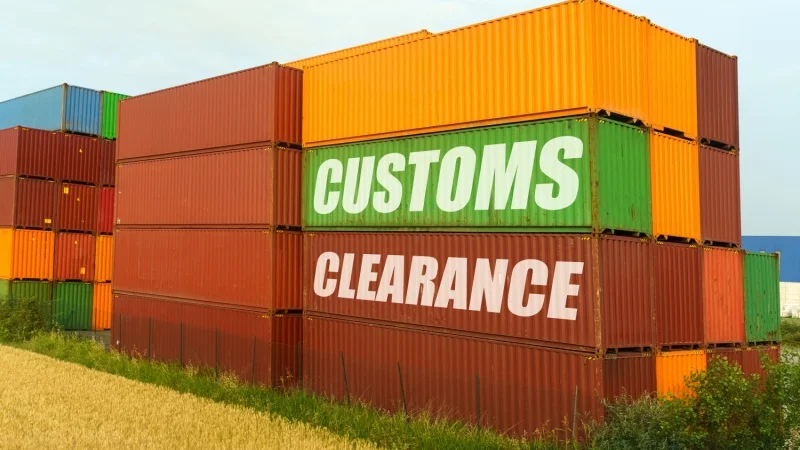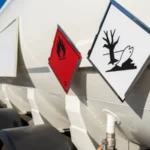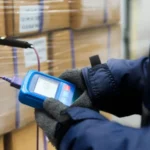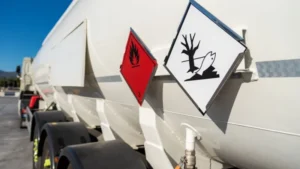Navigating customs with confidence is to ensure your goods pass smoothly from one nation to the next. The Customs Clearance Process is the crucial process of gaining official approval from customs authorities, transforming a pile of paperwork into a streamlined pathway for your shipment. Customs clearance helps your products travel the globe effortlessly and legally by carefully submitting documents, paying necessary fees, and adhering to trade rules. Rely on a trustworthy service provider to smoothen this process as it delays and avoids penalties, contributing to streamlined logistics operations. You can look forward to a seamless shipping experience.
A Brief Overview About the Customs Clearance Process
Customs clearance is the procedure by which goods receive authorization from customs authorities for import or export. This process includes submitting necessary documentation, paying relevant fees and duties, and ensuring adherence to regulations, allowing the shipment to legally enter/exit a country. The customs clearance process ensures compliance with all legal and regulatory standards and is crucial to international trade. The process involves classifying goods, assessing their value, and conducting inspections. Essential documents, such as invoices, packing lists, and certificates of origin, must be accurately provided.
Defining Steps of Customs Clearance Process
From gathering and preparing all necessary documentation, submitting these documents to customs authorities for review, and ensuring all applicable duties and taxes are paid promptly to avoid delays in complying with any additional regulations or inspections required by customs. Follow these four steps to streamline and learn the custom clearance process.
- Review of Documents: A customs officer reviews your documentation, which needs to be precise and comprehensive, particularly the shipping label and commercial invoice. The commercial invoice is crucial as it details the shipper’s and receiver’s contact information, the export date, and the airway bill number. You will need a list of required documents like –
- Purchase order
- Commercial invoice
- Bill of Lading
- Export Packing List
- Air Waybill
- Letter of Credit
- Warehouse Receipt
- Certificate of Origin
- Insurance Certificate
- Export License
- Checking Import Fees & Taxes: Import duties and taxes are determined based on the customs documents involved in the cargo clearance procedure. These fees can vary according to the type of goods, their value, and the specific import regulations of the destination country. Duties are applied to goods that surpass the de minimis value, which is the minimum threshold for taxable imports. Accurate and complete paperwork is crucial for determining the correct fees and ensuring compliance with all relevant trade laws.
- Request of Payments: Customs will request payment for taxes and duties if they apply. When your shipment surpasses the tax threshold, the customs officer will verify whether the required duties and taxes have been settled. At this stage, it is essential to consider whether you are shipping under Deliver Duty Unpaid (DDU) or Deliver Duty Paid (DDP) terms. With Deliver Duty Paid (DDP), all import duties and taxes are covered in advance, while Deliver Duty Unpaid (DDU) means charges remain unpaid.
- Clearance of Customs: Your shipment will clear customs once all applicable duties have been settled. After customs clearance, your selected courier service will transport the shipment from customs to its destination. While delays at customs are uncommon, they typically occur due to issues with the documentation. Ensuring that all fees are settled promptly helps facilitate a smooth transition through customs and minimizes the risk of delays involved in the steps of importing. If your shipment gets stuck during customs clearance, be sure to contact your 3PL provider and carrier and try finding out if there are any outstanding taxes.
Additional Costs You Might Incur in the Customs Clearance Process
Understanding these potential additional costs can help you better prepare and manage your budget, ensuring a smoother and more predictable customs experience.
- Agent Charges: Customs brokers or agents typically levy fees for their services in handling the import cycle in shipping. These fees reflect their expertise in preparing and submitting the necessary documentation, negotiating with customs officials, and ensuring adherence to regulations.
- Demurrage Fees: If goods are not removed from the port or customs warehouse within the designated timeframe, demurrage fees may be incurred. These charges cover the cost of using port facilities or storage for longer than the agreed period.
- Penalty Fees: Failure to comply with customs clearance regulations in Qatar can lead to penalties, such as fines or extra charges. These fees may result from incorrect documentation, undervaluation, or not following import/export restrictions.
- Re-export Fees: If goods fail to meet customs requirements and need to be sent back to their origin, re-export fees will apply. These fees cover the expenses associated with shipping and processing the return.
- Amendment Fees: These are charges incurred for making changes or correcting errors in documentation after submission, which may require additional processing by customs authorities.
Grasping customs clearance charges and the overall clearance process is crucial for effective international trade. The procedure encompasses multiple stages, including documentation and duty payment, all aimed at ensuring regulatory compliance. By understanding the concept of the customs clearance process and being mindful of potential extra costs, businesses can more efficiently manage their logistics and avoid unforeseen expenses. Rely on Travelite, as it offers customs brokerage services and contributes to a more seamless customs experience, supporting timely and cost-efficient import and export activities.










